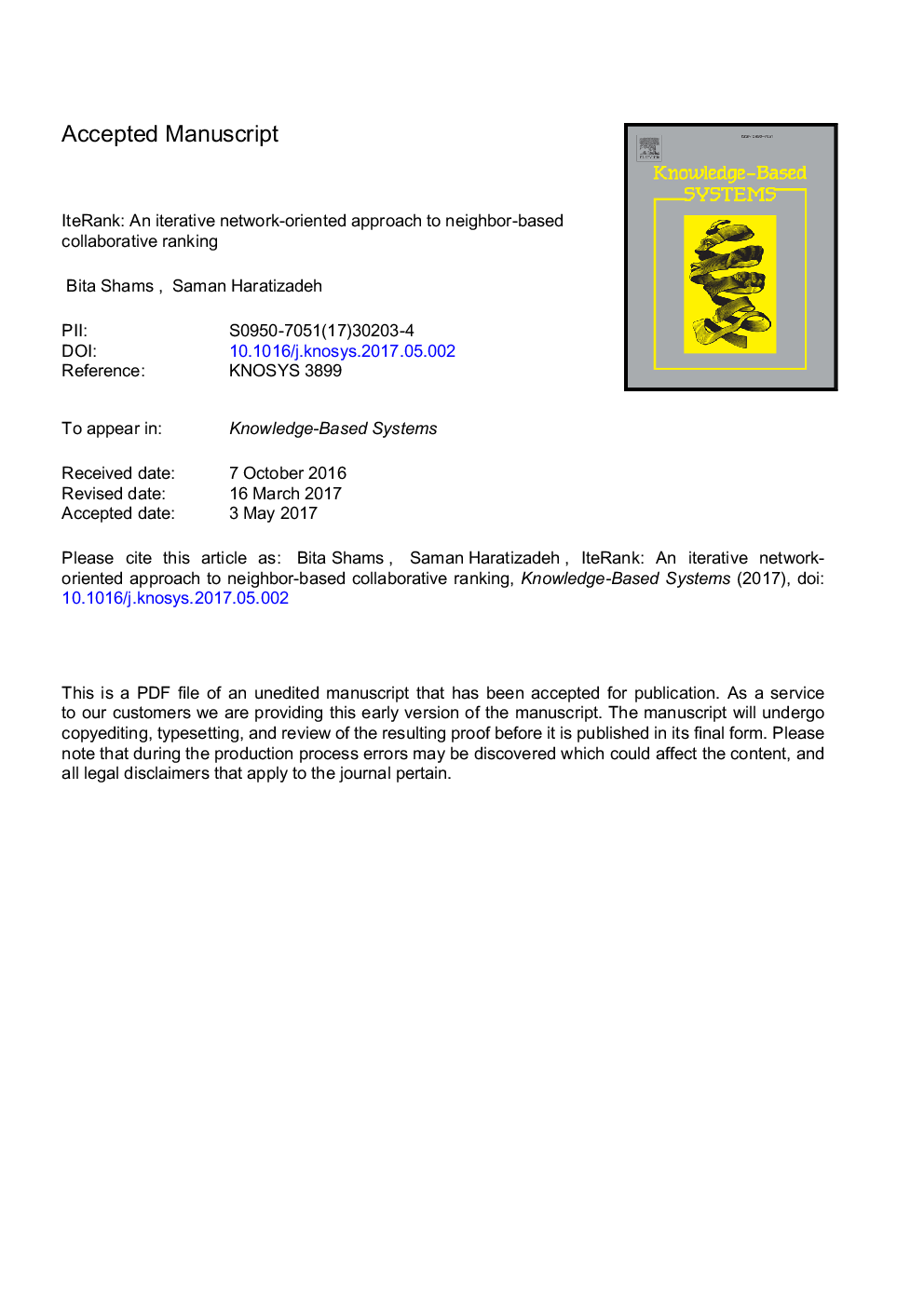| Article ID | Journal | Published Year | Pages | File Type |
|---|---|---|---|---|
| 4946219 | Knowledge-Based Systems | 2017 | 34 Pages |
Abstract
This article presents a novel framework, called IteRank, that models the data as a bipartite network containing users and pairwise preferences. It then simultaneously refines users' similarities and preferences' concordances using a random walk method on this graph structure. It uses the information in this first step in another network structure for simultaneously adjusting the concordances of preferences and rankings of items. Using this approach, IteRank can overcome some existing problems caused by the sparsity of the data. Experimental results show that IteRank improves the performance of recommendation compared to the state of the art NCR techniques that use the traditional NCR framework for recommendation.
Related Topics
Physical Sciences and Engineering
Computer Science
Artificial Intelligence
Authors
Bita Shams, Saman Haratizadeh,
